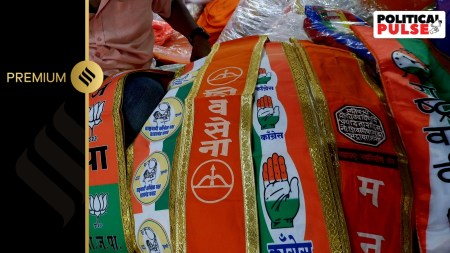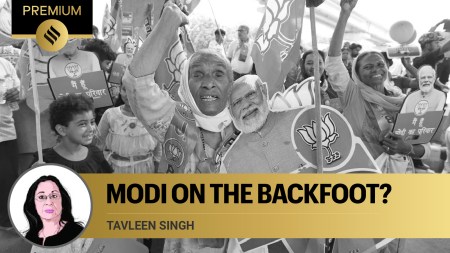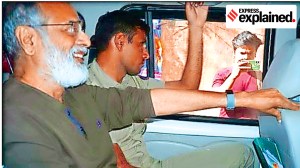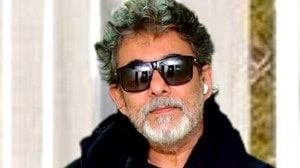- India
- International
The Maestro returns: Zubin Mehta in Mumbai
Zubin Mehta on being conductor of the Israel Philharmonic Orchestra, need for patrons to promote music in India and why he doesn't perform in Delhi
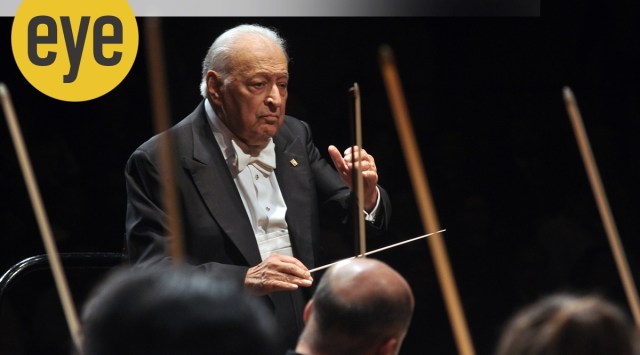 Zubin Mehta conducts the orchestra at Mumbai’s Jamshed Bhabha Theatre (NCPA, Mumbai)
Zubin Mehta conducts the orchestra at Mumbai’s Jamshed Bhabha Theatre (NCPA, Mumbai) In 1971, when Zubin Mehta, the then music director of the Israel Philharmonic Orchestra performed in Berlin, he chose Gustav Mahler’s Symphony No. 1 (Titan), an ambitious piece by the famed Jewish composer from Austria. The crescendo and its dramatic finale got a standing ovation from the audience, who called for an encore. Just after Mehta took a bow, he hollered, “Hatikvah (The Hope)”. Soon, he was conducting Israel’s national anthem, barely half a kilometre away from the Reichstag. A musician had found a way to shift the goalposts, finding a greater purpose than just pleasing an audience. It was political. It mattered.
Mehta, 86, chose the Mahler piece to conclude his two concerts with the Symphony Orchestra of India (SOI) at Mumbai’s Jamshed Bhabha Theatre at NCPA (National Centre for Performing Arts), his first collaboration with an India-based orchestra. And it came two days after his conversation with senior journalist Karan Thapar in a public programme, where he mentioned that he was miffed about a national publication trimming his interview where he said, “I hope my Muslim friends can live in peace forever in India”. He added that “the madness of religious persecution ought to end”.
For Mehta, a committed Mahlerite, playing the composer’s works is routine. But Titan was also a reminder of the power music can hold, even when examined years apart. It was radical then, it feels radical now.
“When my longtime-friend Khushroo Santook (NCPA Chairman and SOI Co-Founder) asked me to come and play Mahler, and he had been asking for a while, I said yes. But, honestly, I was skeptical (if the orchestra would manage). But I was surprised at the first rehearsal. They (musicians) were lovely,” says Mehta.
On August 21, Mehta treaded slowly on the stage with a cane. He climbed the podium and opened with the Indian national anthem and conducted the rest of the concert – Mozart’s Overture to The Marriage of Figaro, Schubert’s Symphony no 8 ‘Unfinished’, and Mahler’s ‘Titan’ – sitting in a chair. His health issues, including a kidney tumour, compel him to conduct the orchestra sitting down.

“I’ll rest when I get older,” he’d often say in his 40s and 50s. But, it is never easy to sit back and not be Zubin Mehta, who, at 86, says that he is “young enough”. “I have some of the most complex musical scores to interpret and conduct going on in my head. I have to know when to lead (the musicians) and when to let them play (on their own),” he says.
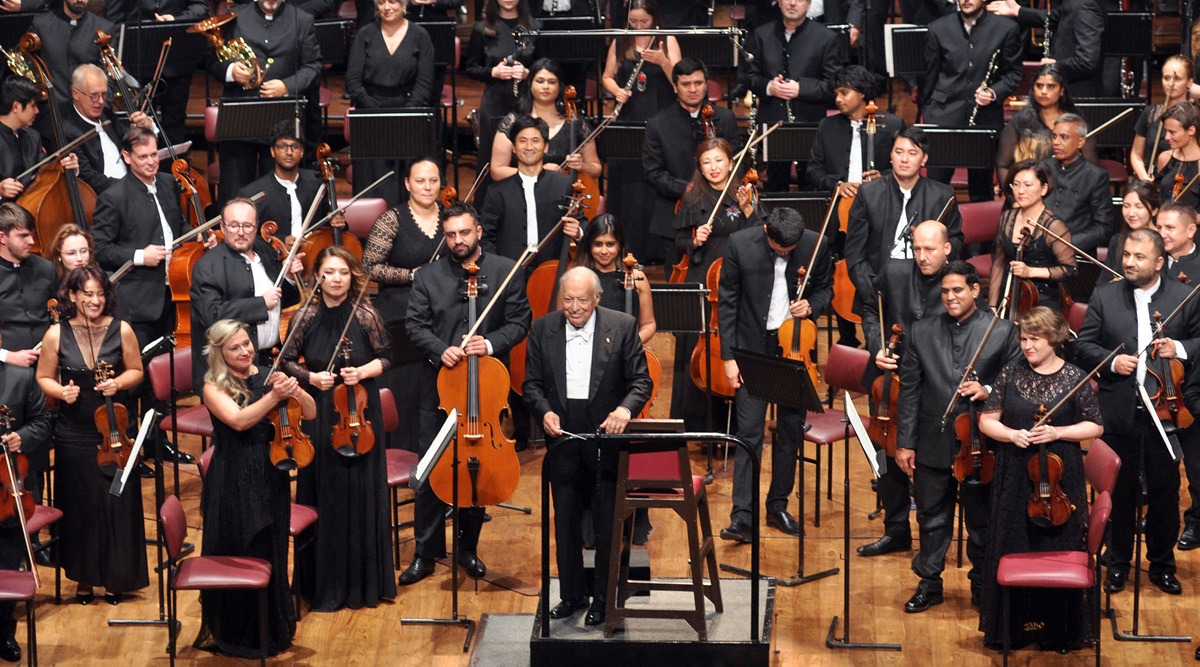 Zubin Mehta with the Symphony Orchestra of India at NCPA, Mumbai (NCPA, Mumbai)
Zubin Mehta with the Symphony Orchestra of India at NCPA, Mumbai (NCPA, Mumbai)
Born and raised in Mumbai in a Parsi family that spoke Gujarati, Mehta knew he’ll be a musician. His parents persuaded him to become a doctor but music was far more fascinating for Mehta, whose Cuffe Parade home resonated with western classical music. In 1935, his accomplished violinist father Mehli Mehta founded the Bombay Symphony Orchestra, which comprised Parsi amateur musicians, Goan folk artistes and some members of the Navy band. Mehta heard a “real orchestra” only when he left home at 18, in 1954, and moved to Vienna to study music. He trained for about three years at the Academy of Music and conducted his first orchestra at a refugee camp outside Vienna with seven students soon after the Hungarian Revolution of 1956. By 1961, he’d conducted the Vienna, Berlin and Israel Philharmonic. He was 25 years old.
Mehta went on to become music director of the Los Angeles Philharmonic (1962-78) and New York Philharmonic (1978-91). He not only became one of the greatest music conductors in the world, interpreting the music of Romantic-era titans such as Mahler, Tchaikovsky, Brahms and Beethoven, but also never shied away from taking a political stand.
While finding his sound, he bridged the gap between the East and West, pursuing a career in a space that many Indians still do not attempt to seek. Which is why an Indian conducting a Western classical orchestra would have been a strange sight in the ’60s. But Mehta says that he never felt out of place, be it in most of Europe or the US. Sectarianism reared its head only in the UK. “I was assistant conductor of the Liverpool Philharmonic for one season and let’s say it wasn’t a pleasant experience,” says Mehta. IPO appointed him as music adviser in 1969 and music director for life in 1981. He recently retired from the Israel Philharmonic after a 50-year association.
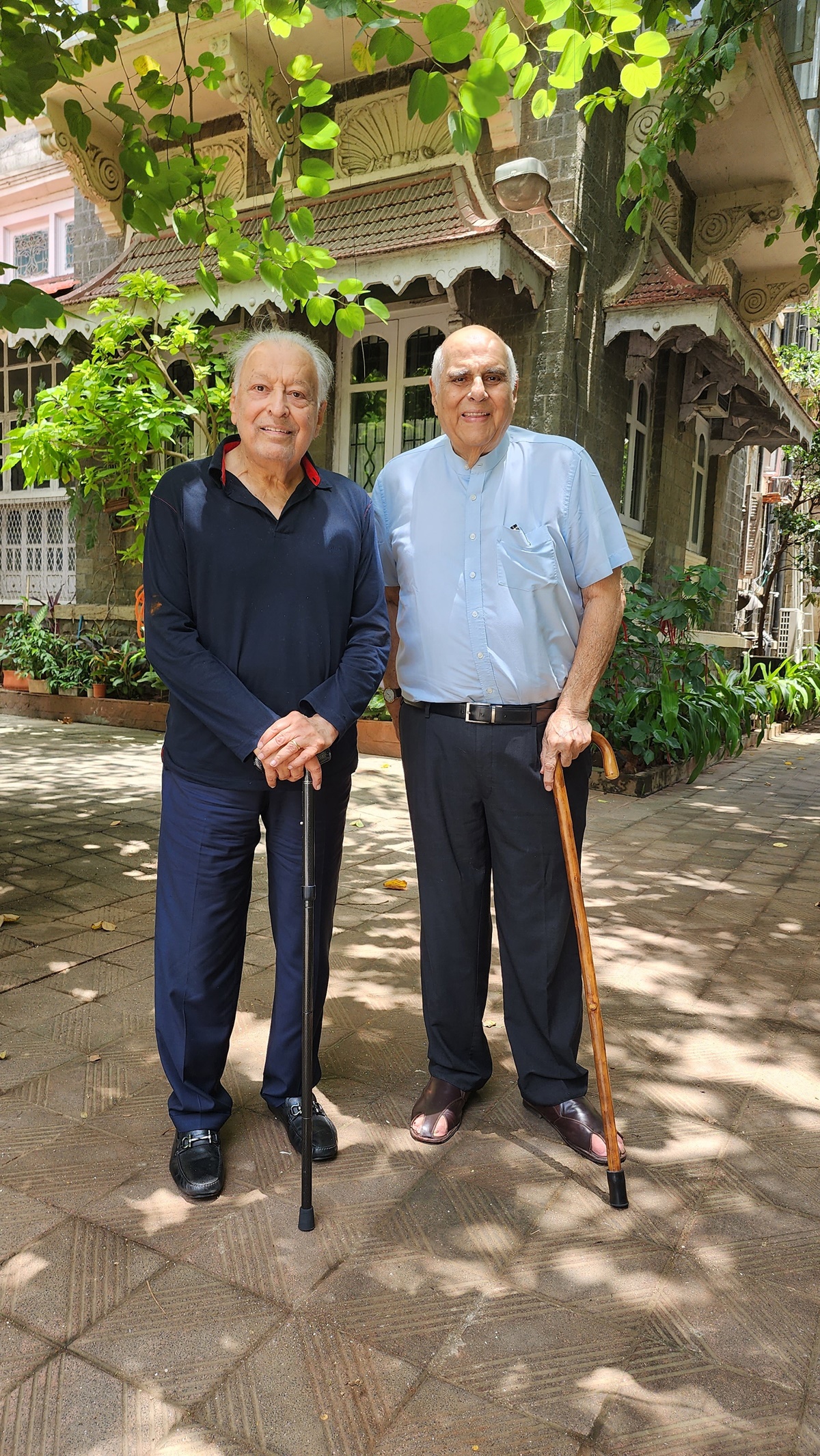 Zubin Mehta with his childhood friend, KN Suntook, NCPA Chairman and SOI Co-Founder (NCPA Mumbai)
Zubin Mehta with his childhood friend, KN Suntook, NCPA Chairman and SOI Co-Founder (NCPA Mumbai)
But the tryst with the orchestra has often taken him into rough waters. Be it an attempt to play Wagner in Israel, where the German musician’s music is considered anti-Semitic or the time an IPO concert in London was disrupted with booing and shouting by protesters who spoke of Israel’s atrocities on Palestine. “Sometimes pro-Palestian disruptions have happened when we played at American universities too… London was a complete surprise. We were at the Royal Albert Hall with 4,000 people, I was in the middle of a piece when a guy started singing, holding the banner ‘Free Palestine’. I didn’t stop. And they were removed. Although there are a lot of people who were absolutely in agreement with a positive future and a separate state, they too, were against the concert being disturbed,” says Mehta. The protest also alleged that IPO had close links with the Israeli army. “Every single Israeli has been in the army. There was a time when some musicians would sit on stage with pistols in their pockets. It doesn’t happen anymore,” says Mehta, who often visited Ramallah on the West Bank and has worked with many Arabic musicians, in the hope that the orchestra will have artistes from both communities. In 1978, he asked Israel’s Prime Minister Menachem Begin to send IPO to Cairo as a gesture of goodwill. In 1999, he conducted Israeli and German musicians near a Nazi concentration camp in Buchenwald, Germany.
After travelling the world, it’s Los Angeles that he calls home now, where he lives with his wife Nancy. To Mehta, his return to Mumbai has also been a reminder of urban densities. “The seven islands now have two million people. You can imagine how suffocating it is here,” says Mehta, who would once walk around his home and have long conversations with his friend Yusuf Hamied, the founder of Cipla, with whom he went to school.
While Mehta has had an exciting trip and believes that in India, “every single part has its own music and some of the most incredible dancers and musicians,” he rues the lack of proper training and patronage for Western Classical music. “Children are learning…but it’s not proper. The government doesn’t give enough opportunity for tax deduction, like the US does. There should be more public support. Just coming to applaud at the end is not enough. They have to open their pockets so that an orchestra can buy better instruments and train better,” he says.
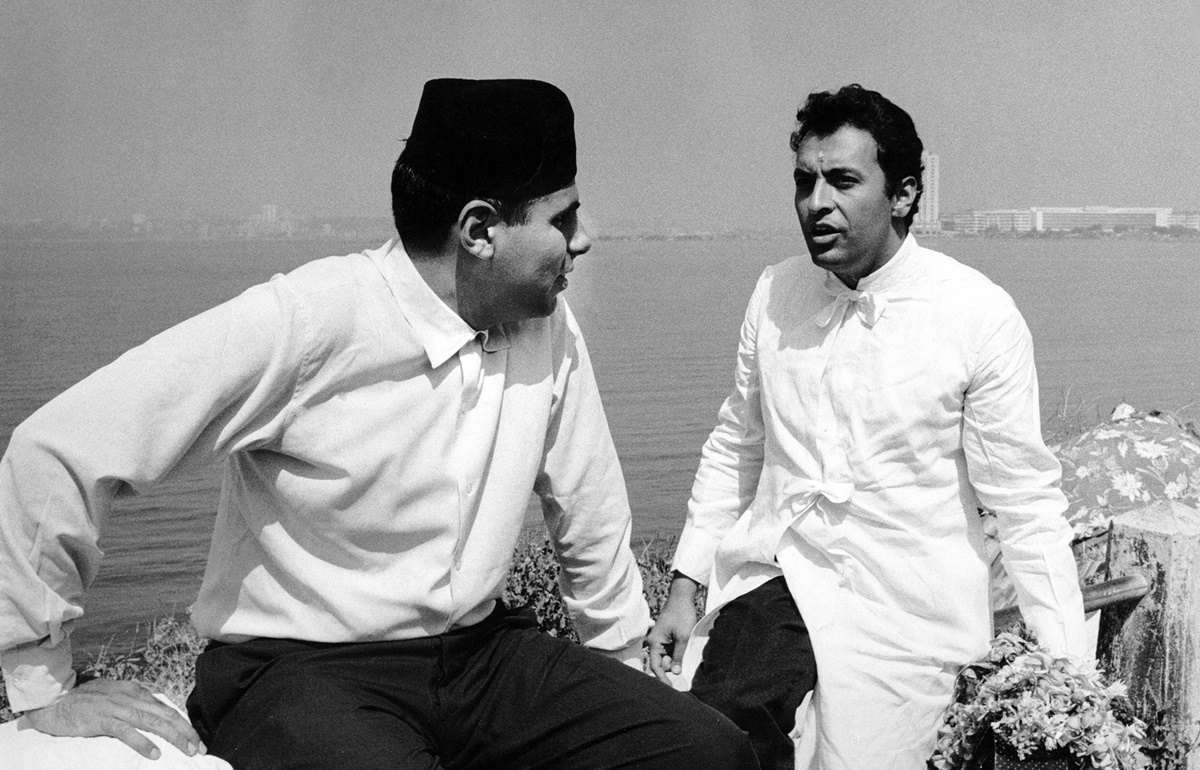 Mehta and Suntook in their younger days (NCPA Mumbai)
Mehta and Suntook in their younger days (NCPA Mumbai)
However, Delhi is not a destination for Mehta. He did perform, though, at the JLN stadium’s weightlifting auditorium in 2015. “I will come when there is a proper concert hall. I have asked many governments, many times. They agree. But there still isn’t any concert hall,” he says. Mehta hopes to return and perform Stravinsky’s The Rite of Spring. “There are no plans yet though,” he says. But there is the promise of a next time.
May 16: Latest News
- 01
- 02
- 03
- 04
- 05






